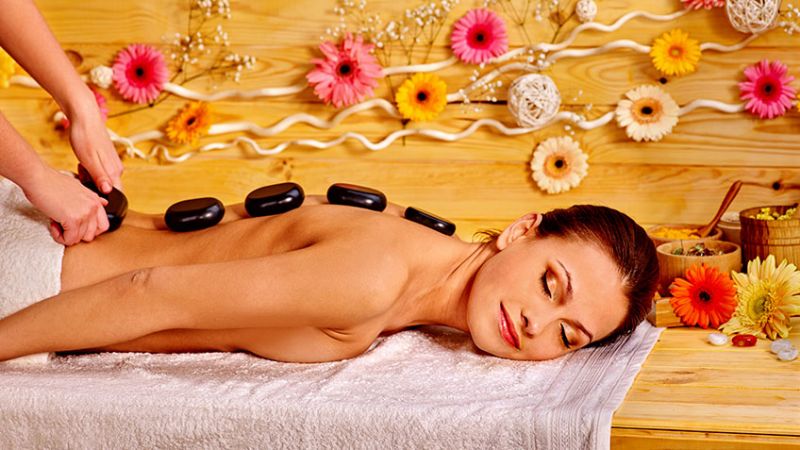
Choosing a career in massage therapy can be incredibly rewarding, emotionally, professionally, and even financially. Whether you're an interior designer planning a wellness centre, a young professional exploring a new path, or a DIY enthusiast passionate about well-being and home-based treatments, understanding the realities of massage therapy can save you time, money, and stress.
Before stepping into this hands-on profession, several key insights could reshape how you view massage therapy, not just as a job, but as a lifestyle and commitment. In this article, I'll share five things I wish I had known before diving into the world of massage therapy, especially useful for those in the UK considering it as a full-time profession or supplemental income stream.
1. It's More Physically Demanding Than You Think
Massage therapy is often perceived as a relaxing, almost meditative career. While it's true that giving massages can be deeply satisfying, it's also incredibly taxing on your own body. The repetitive motions, long hours on your feet, and sustained physical effort can lead to fatigue, muscle aches, or even repetitive strain injuries if not managed carefully.
Proper ergonomics, regular stretching, and strength training are essential for longevity in this field. When I first began, I underestimated how important it was to maintain my physical fitness. Now I incorporate yoga and regular massages for myself just to stay in good shape, an investment that pays off in stamina and client satisfaction.
If you're thinking about converting part of your home into a serene treatment room, remember to consider space not just for the client, but also for you to move safely and comfortably around the massage table without straining.
For designers and architects planning wellness studios or home treatment rooms, understanding the spatial and ergonomic needs of the therapist can lead to more functional and sustainable design solutions.
2. Emotional Energy Plays a Huge Role
Massage therapy isn't just physically demanding, it's emotionally complex as well. You may work with clients dealing with high levels of stress, trauma, or grief. This emotional weight can sometimes transfer onto you, especially if you're empathetic by nature, a common trait among therapists.
One thing I didn't anticipate was emotional burnout. Setting strong emotional boundaries, practicing self-care, and even working with a supervisor or counsellor can help you process these interactions without letting them impact your mental health.
You also become a kind of confidant. Clients often open up during sessions, and it's vital to foster a safe yet professional environment. Knowing how to navigate personal disclosures while maintaining healthy boundaries is a skill that comes with time and experience.
This is particularly important for those planning to integrate massage therapy into multi-use spaces like boutique spas or co-working wellness spaces. Ensuring that each area has the right mix of tranquility, privacy, and safety can enhance both the client and therapist experience.
3. Learning Never Stops After Certification
Most people assume that once you've completed your certified course (often a Level 3 Diploma in Massage Therapy in the UK), you're fully prepared for the job. In reality, that's just the beginning.
Ongoing professional development is crucial. From advanced techniques like deep tissue and sports massage to complementary skills like aromatherapy or reflexology, there's always something new to master. The industry continues to evolve, and clients are becoming more educated on what they want.
Additionally, regulations and certifications may vary slightly across regions in the UK, so making sure your qualifications align with local council requirements is necessary, especially if planning to work independently or run a mobile service.
Without a mindset of continuous learning, it's easy to fall behind. Building a portfolio of workshops and attending trade events like the Holistic Health Show or attending CPD courses not only boosts your skills, but it also improves your visibility and reputation in a competitive field.
4. Self-Employment Requires Business Savvy
Mention "massage therapy" and most imagine quiet music, essential oils, and warm hands. What many don't think about until it's too late is tax returns, client databases, scheduling apps, online marketing, and rent payments.
The truth is, most massage therapists in the UK are self-employed. You'll need to learn the basics of running a business, from setting up a proper home treatment room or mobile service, to managing bookings, insurance, and complying with GDPR for client records.
Creating a website, understanding SEO, building a client mailing list, and collecting reviews are all part of marketing yourself. Trust and word-of-mouth are vital in this industry, but even that won't go far without a professional online presence.
For designers or tradesmen looking to create ideal therapy spaces, it's important to understand the practicalities your clients face, what kind of lighting, heating, sound isolation, and furniture make life easier for a self-employed therapist juggling clients all day.
5. Building a Client Base Takes Time
You're not going to finish your training and instantly have clients lined up at your door. Building a loyal client base takes time, effort, consistency, and great people skills.
The first few months or even years can be slow. This doesn't mean you're failing; it's just part of establishing trust and reputation. Joining a wellness centre, partnering with local gyms, offering deals or referral programmes, and utilising social media can help you grow steadily.
Your location also matters. In areas like London, competition is fierce, but client demand is often higher. In smaller towns, you might face less competition but slower client turnover. Having a strategy tailored to your community is key.
If you're incorporating a massage room into a home or commercial renovation, factor in the long-term customer experience comfort, accessibility, and ambience will help retain clients and improve word-of-mouth referrals.
Final Thoughts
Massage therapy is a powerful, healing profession, but it's far more complex and demanding than it might first appear. From physical strain to emotional endurance, from ongoing education to marketing hustle, it truly requires passion and perseverance.
Knowing what to expect helps you make better decisions, whether you're a budding therapist, a homeowner planning a wellness room, or a designer working on therapy studios. Prepare thoroughly, invest wisely, value your own well-being and you'll be well on your way to building a fulfilling, resilient massage therapy practice in the UK.



